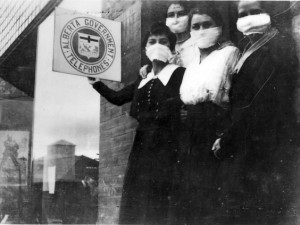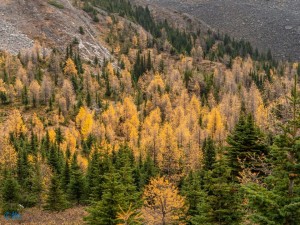
Happy Thanksgiving.
October 12th is also my day for the BWL Author’s blog. Today I write about attending my first online writers’ festival, which was the first online version of When Words Collide Festival for Readers and Writers.
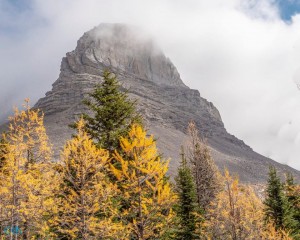

Happy Thanksgiving.
October 12th is also my day for the BWL Author’s blog. Today I write about attending my first online writers’ festival, which was the first online version of When Words Collide Festival for Readers and Writers.

I learned today about a new poetry form – Haiflu – attributed to poet Liv Torc, who coined the term for National Poetry Day. It means a haiku written in response to the Coronavirus pandemic. It seems my Lougheed contest winning haiku is haiflu.
The Lougheed House has now posted my recording of the haiku on Twitter.
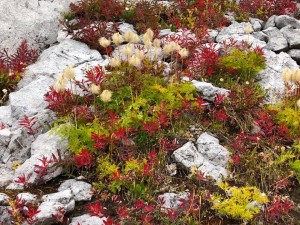
Last month, a friend coaxed me to enter the 2020 Lougheed House Haiku Contest. A seventeen syllable poem struck me as an amount of writing I could manage during a busy summer.
I checked the contest guidelines. No entry fee. They allowed three haiku submissions per person. Themes suggested were gardens, nature, Calgary community, and life during the pandemic.
Gardens made me instantly think of my next-door neighbour, who spends four hours a day tending her beautiful outdoor plants. One of her flower beds borders my front lawn. I started to think of this burst of colour as a connector between her and me during our pandemic isolation.
I knew haiku had lines, but needed the internet to remind me the traditional pattern is 5,7,5 syllables per line. My high school English teacher taught that haiku should refer to a season, although I gather that’s no longer necessary.
My thinking and research led to this haiku:
my neighbour’s garden
bursts colour beside my yard
links us through summer
The contest required entrants to include a video of us reading or reciting our poems. I nabbed my husband Will for a cell phone recording. I stood behind the front yard flower bed and had to speak loudly to be heard, while resisting the urge to check that no one was passing by and watching me strangely.
” height=”266″ src=”https://img1.blogblog.com/img/video_object.png” width=”320″ style=”background-color: rgb(178, 178, 178); background-image: url(“/video-thumbnail.g?contentId=fbc94a89bcfeecb4″);”>
After I drafted this first haiku, Will and I set off on a bike ride to downtown Calgary. While pedaling by the Bow River, I mentally composed a haiku about how the pandemic closure of cafes, bars and gyms inspired people to go for walks along the river; a healthy, easy and free activity. We made a recording at our lunch spot beside the Bow River. Then we biked through a park and passed a group of women sitting in a circle of lawn chairs placed two metres (6.5 feet) apart, Canada’s social distancing recommendation.
I realized the phrase ‘two metres apart’ is five syllables – the ideal haiku first line length!
To suit the contest themes, I placed the ladies in a garden. I liked the slightly archaic word ‘ladies’ for a contest sponsored by Calgary’s historic Lougheed home. Drinking tea also evokes the past to me and what do ladies discuss at a garden tea? Their gardens. Present and past blended into my next haiku:
two metres apart
ladies sit in the garden
drink tea, talk flowers
Will and I recorded this haiku in my neighbour’s back yard. Since the video was too large to save to my computer, we uploaded it to dropbox. I sent my three haiku to the contest.
A week later, I got the word that my poem ‘two metres apart’ placed first in the Lougheed House Haiku Contest and ‘my neighbour’s garden’ received an honorable mention. The contest judges commented that they appreciated the garden imagery, since the Lougheed home is known for its splendid Beaulieu Gardens.
The Lougheed House is posting the winning haiku recordings on its social media. You can find them on Facebook and Twitter.
Writing the haikus was fun and an opportunity to reflect on the links between gardens, people and the pandemic.
I thank my good friend
& historic Lougheed House
for inspiration
Today, on the Books We Love Author Blog I write about my poetry contest win in the 2020 Lougheed House Haiku Contest.
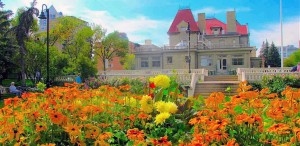
On Youtube, I stumbled upon this excerpt from the Print(ed) Word Documentary, presented at the Calgary Central Library in January 2020. Sylvia Arthur and I discuss our art book collaboration for my short story, “When a Warm Wind Blows Off the Mountains.” The art book is on permanent display in an alcove off the central library’s fourth floor Great Reading Room.
![Jeannie_colour[1]](http://susancalder.com/wp-content/uploads/2020/09/Jeannie_colour1-300x300.jpg)
Every August for the past nine years, I’ve attended Calgary’s When Words Collide Festival for Readers and Writers. I’ve loved the festival’s energy, learned about the writing craft and book promotion, and acquired new readers and writing connections. When this year’s in-person event was cancelled due to COVID-19, the organizers decided to go online. The festival happens this weekend. It’s free and open to everyone.
I wasn’t sure I’d get involved with the online version of WWC until I saw the first draft of the 3-day program. The organizers invited past presenters to fill vacant spaces on the proposed panels. Several topics grabbed my interest and I was given spots on these two panels:
Ten Things I Wish I’d Known When you started writing, what assumptions blocked your progress, lead you down dead ends, or limited your opportunities and experiences? Panelists share their initial faulty thoughts that slowed their journey into the writing world.
After almost 30 years of writing, I wish I knew a few more things and hope to learn them from my fellow panelists. I’m familiar with all three from past WWC festivals and they’ve achieved success in their widely-varied directions. Our panel will take place on Zoom, Friday, August 14, 3:00 pm. All you need to do to attend is go to the WWC website and click on the event link in the program PDF. No registration or payment required.
My second Zoom appearance will be on Saturday, 1:00 pm, Access Denied: A panel for writers on how to handle rejections and critiques, and communicate with editors/agents/publishers,
The agent on this panel will have a lot to share. I’ve become an expert on this subject during the past 30 years — but I’m still standing!
When I’m not on a panel, I’ll be cruising the WWC program for other panels, presentations and activities to attend. There will be up to five choices every hour from 1:00 pm Friday, August 14th, to 5:00 pm Sunday, August 16th. A number have already caught my eye:
Meet the Mesdames of Mayhem: Fresh from their award-nominated CBC Gem documentary, meet the writers with a century of combined killing time and learn how they freshen up their crime sprees for the 21st century (Sat, 2:00 pm).
Medical Errors and Tropes: A bullet in the shoulder that doesn’t hit anything important? Knock-outs without actual damage? Induced comas? What is realistic and what is not? A discussion of common medical mistakes and questions in fiction (Sat, 3:00 pm).
Plus a couple of panels on editing, which I’m in the midst of doing now for my novel-in-progress.
Two fellow BWL authors will also be involved this year.
Nancy M Bell: Blue Pencil Café
Pitch Sessions
Editors: When Can They Help and How? (Sat 12:00:00 pm)
The Dos and Don’ts of Successful Pitching, (Sun 3:00:00 pm)
David Poulsen: Crime Thru Time (Sat 4:00:00 pm)
From the Mean Streets to the Deadly Wilderness (Sun 1:00:00 pm)
At last year’s WWC festival, David and I participated in a fun panel with two other Calgary area crime writers. For a (virtual) taste of what you’ll get this weekend, you can listen to the podcast of High Crimes in Your Own Backyard.
![67754583_10156073245966012_66593472219447296_n[1]](http://susancalder.com/wp-content/uploads/2020/07/67754583_10156073245966012_66593472219447296_n1-300x225.jpg)
![20170812_174435[16424]](http://susancalder.com/wp-content/uploads/2020/07/20170812_174435164241-e1596201811979-225x300.jpg)
Today, on the BWL Author Blog, I write about Calgary’s annual When Words Collide Festival for Readers and Writers. This year’s festival is online. It’s free and open to everyone.
![20170812_175147[16416]](http://susancalder.com/wp-content/uploads/2020/08/20170812_17514716416-300x225.jpg)
When Words Collide Festival for Readers and Writers is going online this year, from Aug 14-16. It’s free and open to everyone. The organizers are planning five choices of panels, presentations and more every hour from Friday afternoon to Sunday. Most will take place on the Zoom platform.
I’m scheduled for two panels:
Ten Things I Wish I’d Known
![20170812_174435[16424]](http://susancalder.com/wp-content/uploads/2020/07/20170812_174435164242-e1596203115850-225x300.jpg)
When you started writing, what assumptions blocked your progress, lead you down dead ends, or limited your opportunities and experiences? Panelists share their initial faulty thoughts that slowed their journey into the writing world. Host: James Kademan Friday, 3 pm
Access Denied: A panel for writers on how to handle rejections and critiques, and communicate with editors/agents/publishers. Sat, 1:00 pm.
No registration or payment required. You can check out what’s happening on WWC website.
COVID-19 piqued my interest in the Spanish flu, which devastated the world from 1918-1920. This led me to place library holds on several e-books about the subject. The first one available was More Deadly Than War: The Hidden History of the Spanish Flu and the First World War by Kenneth C. Davis. This short book, aimed at young adult readers, turned out to be an excellent primer on the pandemic. It taught me a lot I didn’t know.
The Spanish flu was first noticed in Haskell County, Kansas in January, 1918. Two months later an outbreak appeared in a Kansas army training camp. More outbreaks erupted at other camps in the United States as the country prepared to enter World War I. US troops brought the disease to Europe and passed it on to other allied soldiers and civilians. German soldiers picked it up from allied prisoners they released.
 |
| Crowded sleeping area at Naval Training Station, San Francisco, California |
Both sides in the war supressed news reports on the disease, to keep up morale and not let the enemy know their troops were weakened. Spain was neutral in WWI, which freed journalists to broadcast reports on the new disease striking their fellow citizens, including the king of Spain. The name Spanish flu stuck. To this day, Spain would like that error fixed. I might suggest calling it the Kansas flu pandemic, but the World Health Organization now recommends that we no longer name diseases after places to avoid the negative effects on nations, people and economies. To add to the controversy, some researchers speculate the Spanish flu originated in France, China or the eastern USA. Recent studies on recovered samples of the virus suggest it was initially transmitted by a bird.
Unlike most viruses, the Spanish flu, H1N1 influenza A virus, attacked a disproportionate number of healthy, young adults. One theory for this is that their strong immune systems overreacted. Another is that an earlier strain of the virus gave many in the older generation immunity. It’s now estimated that the Spanish flu’s four waves killed close to 100 million people worldwide , about 1/20th of those alive at the time. It is history’s second most lethal pandemic, after the Black Death.
Sprinkled through More Deadly Than War are stories of historical figures who contracted the disease. In addition to the Spanish king, Walt Disney and artist Edvard Munch recovered. US President Donald Trump’s paternal grandfather was an early victim. According to the family account, Frederick Trump was walking down a New York City street, when he suddenly took ill. He died the next day. The cruel virus tended to act swiftly. Some called it the three day fever.
 |
| Was Edvard Munch’s agonized painting “The Scream” partially inspired by his suffering from the Spanish flu? |
The primary advice in 1918 for escaping the Spanish flu sounds familiar to people living through COVID-19 today.
A friend sent me links to my home city Calgary’s history of the Spanish flu. We know the precise day the disease arrived – Oct 2, 2018, when a train from eastern Canada brought patients to Calgary’s isolation hospital. Unfortunately, the measure didn’t isolate the disease from Calgary residents. An estimated 38,000 people in our province of Alberta contracted the Spanish flu; 4,000 died.
 |
| Poster in 1918 Calgary, courtesy Glenbow Museum |
Will my interest in the Spanish flu filter to my fiction writing? I’m mulling potential ideas for my next Calgary mystery novel.
Today I blog on my publisher’s website about a subject that feels especially relevant today, the Spanish flu pandemic of 1918. To find the post scroll down past Berries! (which I find tasty in summer)
